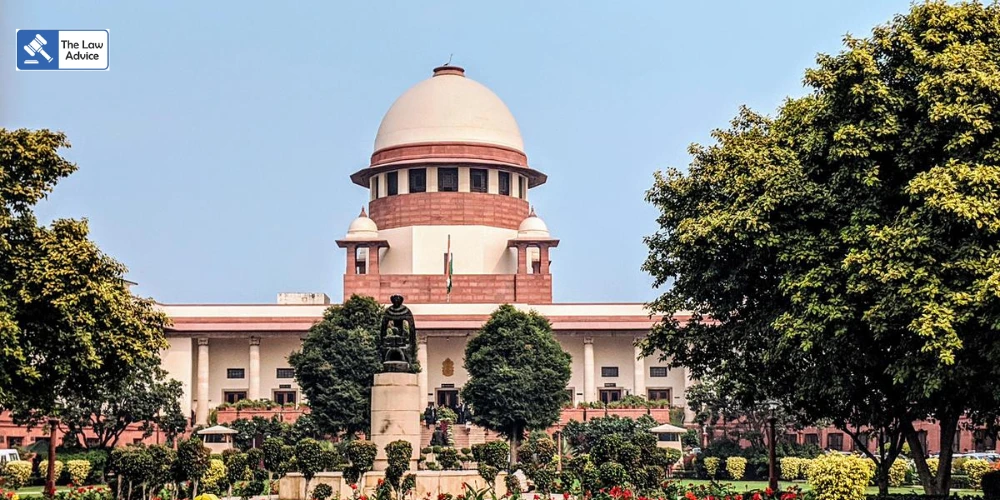The Supreme Court of India has taken a stern view against the practice of registering multiple First Information Reports (FIRs) to nullify the effect of bail orders. In a significant direction, the Court has barred the Uttar Pradesh Police from arresting the accused in any future FIRs without obtaining the leave of the Court.
A bench comprising Chief Justice of India BR Gavai and Justice K Vinod Chandran passed the order while granting bail to the petitioners in connection with an FIR already registered under the Scheduled Castes and Scheduled Tribes (Prevention of Atrocities) Act, 1989 (SC/ST Act) and the Indian Penal Code (IPC).
The Supreme Court’s Direction
Recording the petitioners’ grievances about repeated registration of fresh FIRs after grant of bail, the Court categorically ordered:
“…the petitioners shall not be arrested by the respondents in any of the FIR(s) which will be lodged hereinafter, without the leave of this Court.”
This relief was granted in addition to bail in the August 13, 2024 FIR registered under Sections 3(1)(B), 3(1)(D) of the SC/ST Act (as amended in 2015) and IPC provisions including Sections 141, 148, 149, 307, 323, 395, 397, 452, 504, 506, 420, 467, 468, 471.
The petitioners had earlier approached the apex court in November 2024, contending that the UP Police was misusing the criminal process by filing successive FIRs whenever they secured bail.
Represented by Senior Advocate Siddhartha Dave, they raised an apprehension that upon release from custody, new cases would be fabricated to ensure continued incarceration.
Their fears proved correct. Soon after the Allahabad High Court granted them bail on August 12, 2024 in a case under Sections 376D, 323, 506 IPC, a fresh FIR was registered on August 13 by the police, dragging them into yet another criminal proceeding.
The Supreme Court noted this pattern of events and extended relief by granting bail in the subsequent FIR as well.
The petitioners also sought a wider inquiry into the conduct of the police, alleging political vendetta behind the spate of FIRs.
According to them, their father, a former Member of Legislative Council (MLC) from Bahujan Samaj Party (BSP), had been politically targeted after the change of government in Uttar Pradesh. They claimed that since the new dispensation came to power, as many as 33 criminal cases have been filed against them, while land mafias have allegedly encroached upon their family properties under police protection.
They asserted that the repeated FIRs were nothing but a tool of malicious prosecution, designed to keep them behind bars and frustrate the judicial grant of bail.
This is not the first time the Supreme Court has dealt with such allegations against UP authorities. In May 2025, a separate bench of Justices Surya Kant and Dipankar Datta restrained the state from lodging fresh FIRs against a politically connected couple.
In that case too, the couple argued that every time they were granted bail in one case, a new FIR would surface, effectively ensuring their continued incarceration. The Court had then described such conduct as potentially malicious prosecution with oblique motives.
The present order adds to a growing judicial concern over the practice of successive FIRs, particularly in politically sensitive cases. By directing that no arrest can be made without prior leave of the Supreme Court, the bench has effectively placed a check on arbitrary police powers, at least in this matter.
The decision also strengthens the right to liberty under Article 21 and ensures that the grant of bail is not rendered illusory by repeated state action.
Appearances
• For Petitioners: Senior Advocate Siddhartha Dave, AoR Mohd. Zahid Hussain, Advocates Pallavi Sharma, Jemtiben Ao, Kazi Najesh Haque, Tanisha Koshal.
• For Respondents (State of UP): Additional Solicitor General KM Nataraj, AoR Vishwa Pal Singh, Advocates Ashish Pandey, Mukesh Kumar, Ashutosh Bhardwaj, Akash, Anurag Pandey, Amit Kumar.
Case Title: Wazid & Ors. v. State of Uttar Pradesh & Ors.
Case No.: Writ Petition (Criminal) No. 450/2024
